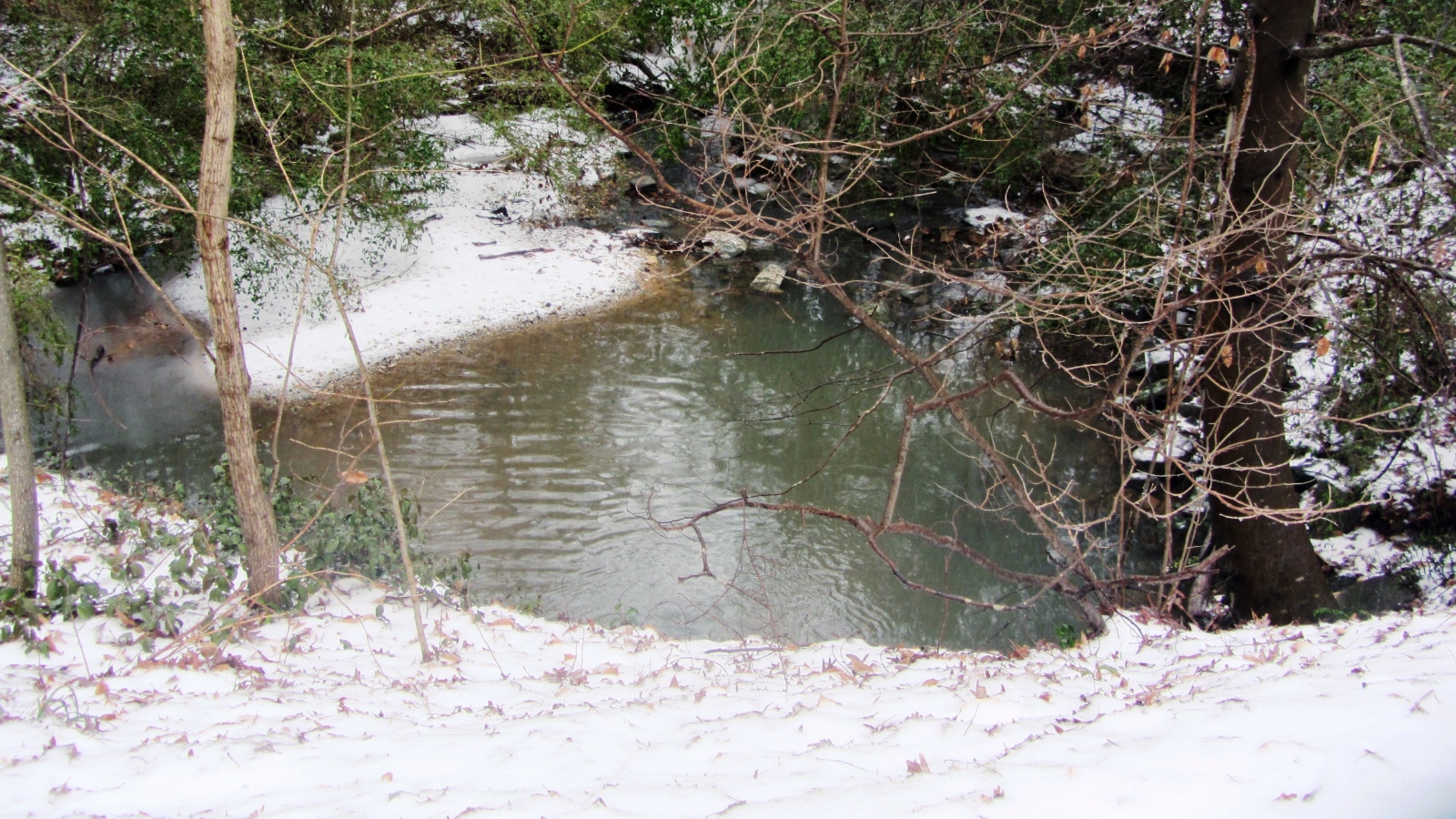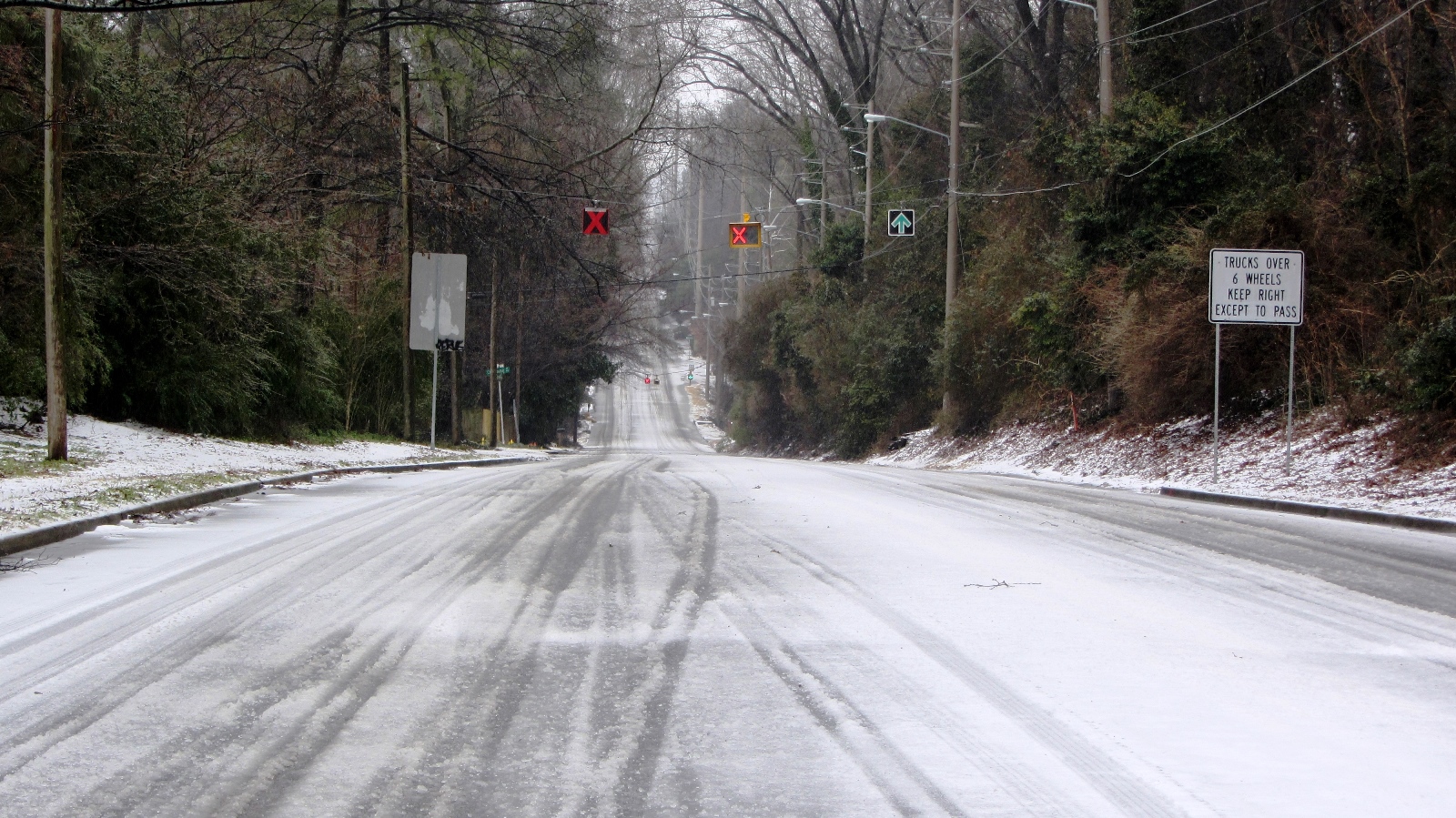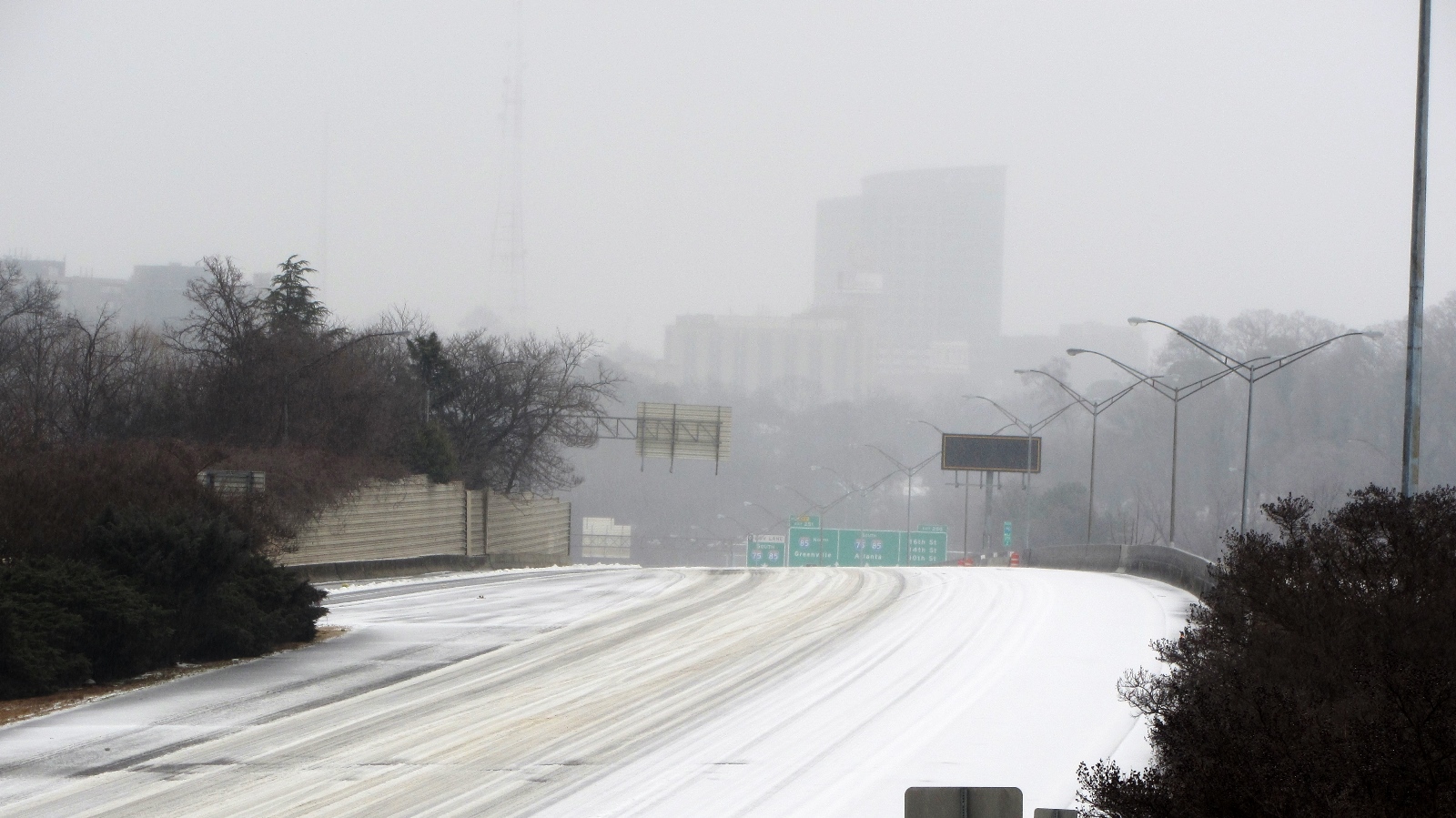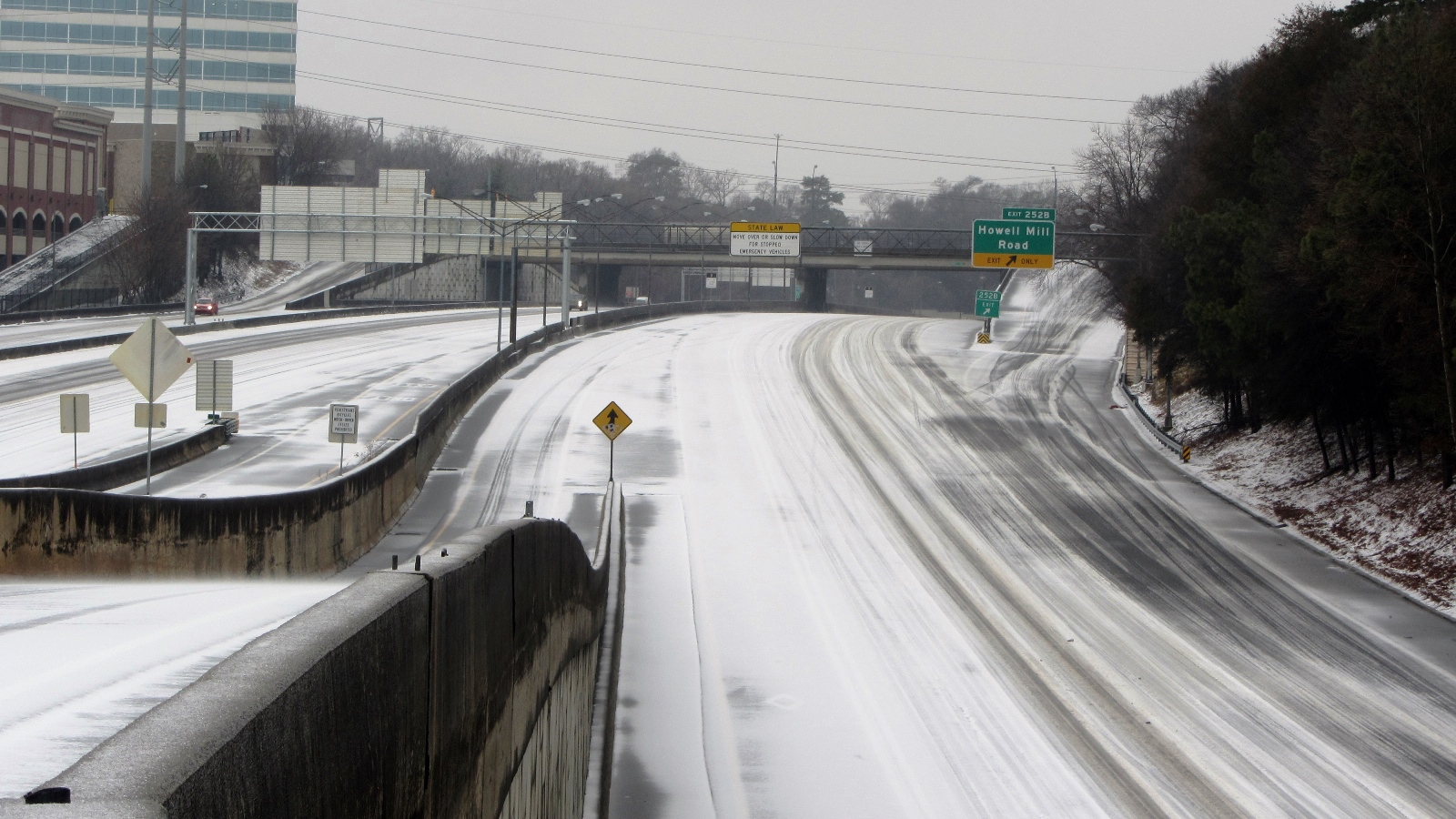One of the benefits of now having a full-time, salaried job is that during last week's Snowpocalypse, unlike the similar event of last month, I was still getting paid even as I was trapped here in the house. A snow day is no longer a no-pay day.
It was also a nice break to help me transition back to the 40-hour work week after over two years of self-employment working at my own schedule and pace. Since starting the job two weeks ago, I put in one full work week, including one day of outdoor field work, before the second week was mercifully interrupted by a three-day weather emergency. The break was appreciated, and helped me be less overwhelmed by the transition.
The worst part of the transition, though, is not getting up earlier or working a full day in an office environment, it's the commuting. The office is in a pretty traffic-congested suburb of Atlanta, and the irony is that every morning I leave the relatively free-flowing streets of the City of Atlanta only to get snarled in traffic out in the suburbs. Same thing on the commute back home - it takes me almost as much time to travel the first two miles home than it takes me to cover the next 18 miles. I've tried different routes to get to the office, but I still can't find a way where I don't end up stuck at a traffic light that changes three or more times before I can finally make it through.
Strangely, though, the traffic is a good opportunity for practice. Right now as I write this, I'm not stuck in traffic, and even though it may feel like it at the time, I know I won't be stuck there forever. Everything changes, everything is impermanent, so why get upset because I'm at a traffic light for longer that I wanted to be when I know that I'll get past it eventually?
Of course, my mind immediately starts thinking that I'm going to be in this same traffic tomorrow, and next week, and next month, and so on for all the rest of my days employed by this firm, and the anticipation of that can be overwhelming. It's worse than the actual traffic at that moment, but do you see what's happening there? The mental model that I've created of an infinite number of traffic delays causes me more suffering and anxiety than the one, finite traffic jam that I'm in at the moment, so it's my own mind that causing me the most suffering, not the real, here-and-now traffic, or the stop light, or the number of times the light changes before I can finally make it through.
Also, why worry about what I can't control? If I can do something about the traffic problem, like take a different route, I will do that, so why worry? And if there's nothing that I can do about it, then why add worry or anger or road rage to the inconvenience of having to sit in the comfortable, adjustable seat of my climate-controlled car listening to my favorite music for longer than I had expected?
So in practical terms, what this means is that when I find myself frustrated by the traffic, I try to remember to ask myself if it's the actual traffic or imagined traffic jams in the future that are upsetting me. If it's truly the situation at hand, then I ask if there's anything I can do about it. If not, I ask myself if my attitude is making the situation better or worse. If it's making it worse, I ask myself if I can change it. And if I find that I can't change my attitude, even though I know that the situation is impermanent, even though I know that my attitude is just making the situation worse, and even though I know my attitude is no one's choice but my own, then I see if I can't learn to accept that. And if I can't even do that, then I will have a lousy morning, and know that it's no one's fault but my own.
This isn't a post about traffic. These situations, where our thinking and imagination causes us more suffering than the reality of the moment, occurs far more often than only in traffic. It occurs in our relationships with friends, bosses, co-workers, lovers, children, and family. It occurs as we contemplate the trajectories of our lives and our finances. It occurs, dear reader, to you as well as to me.







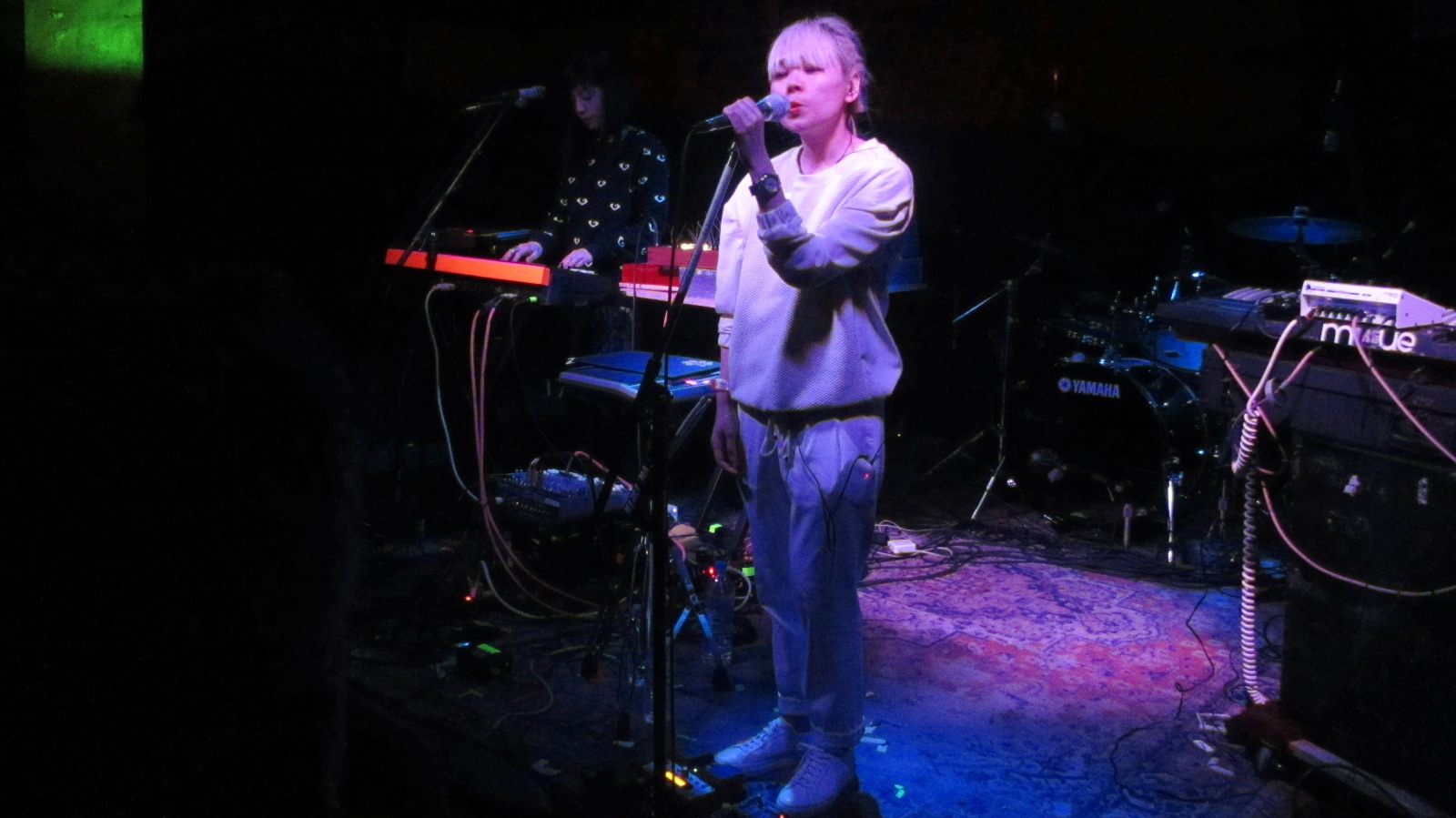






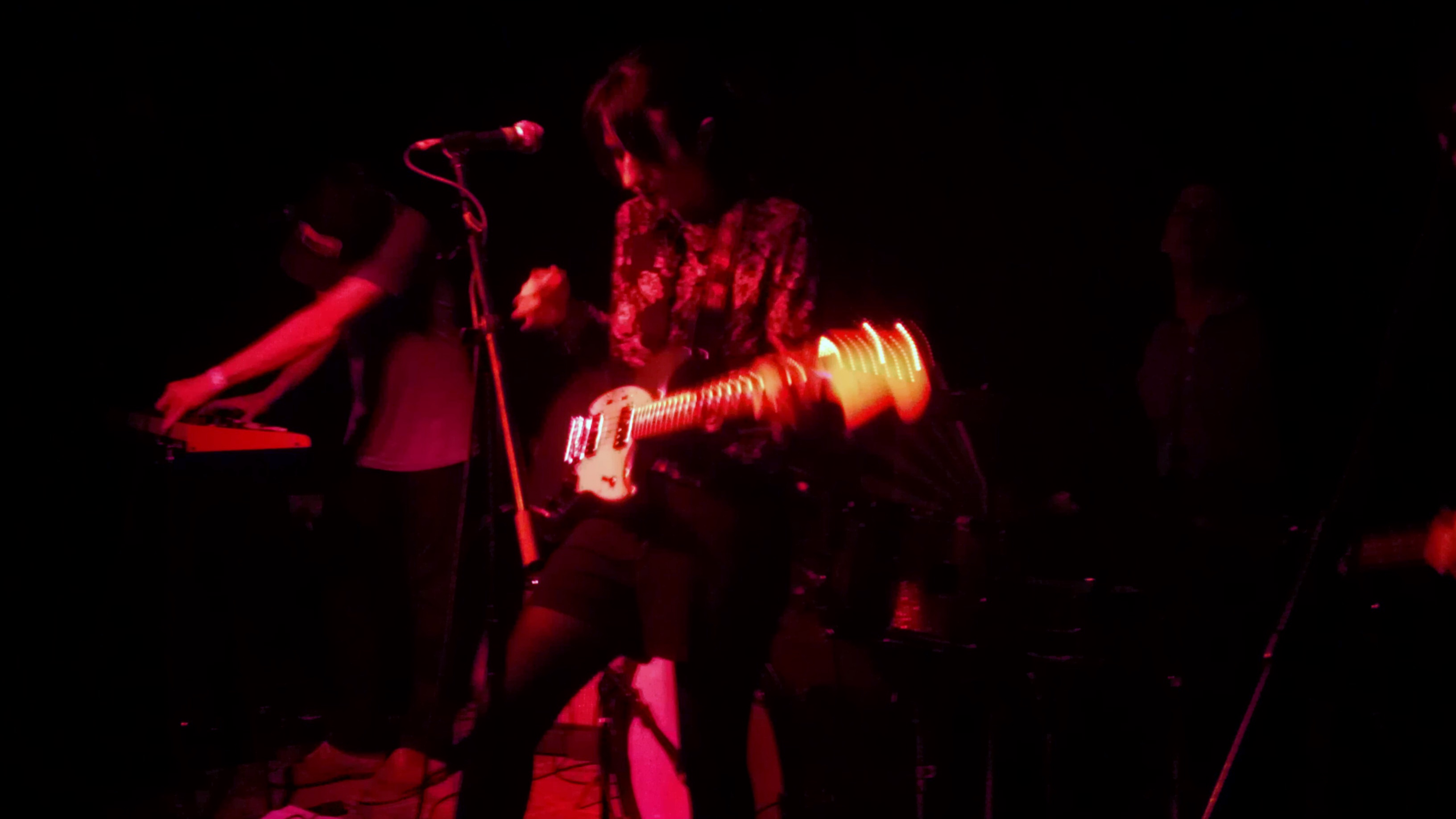
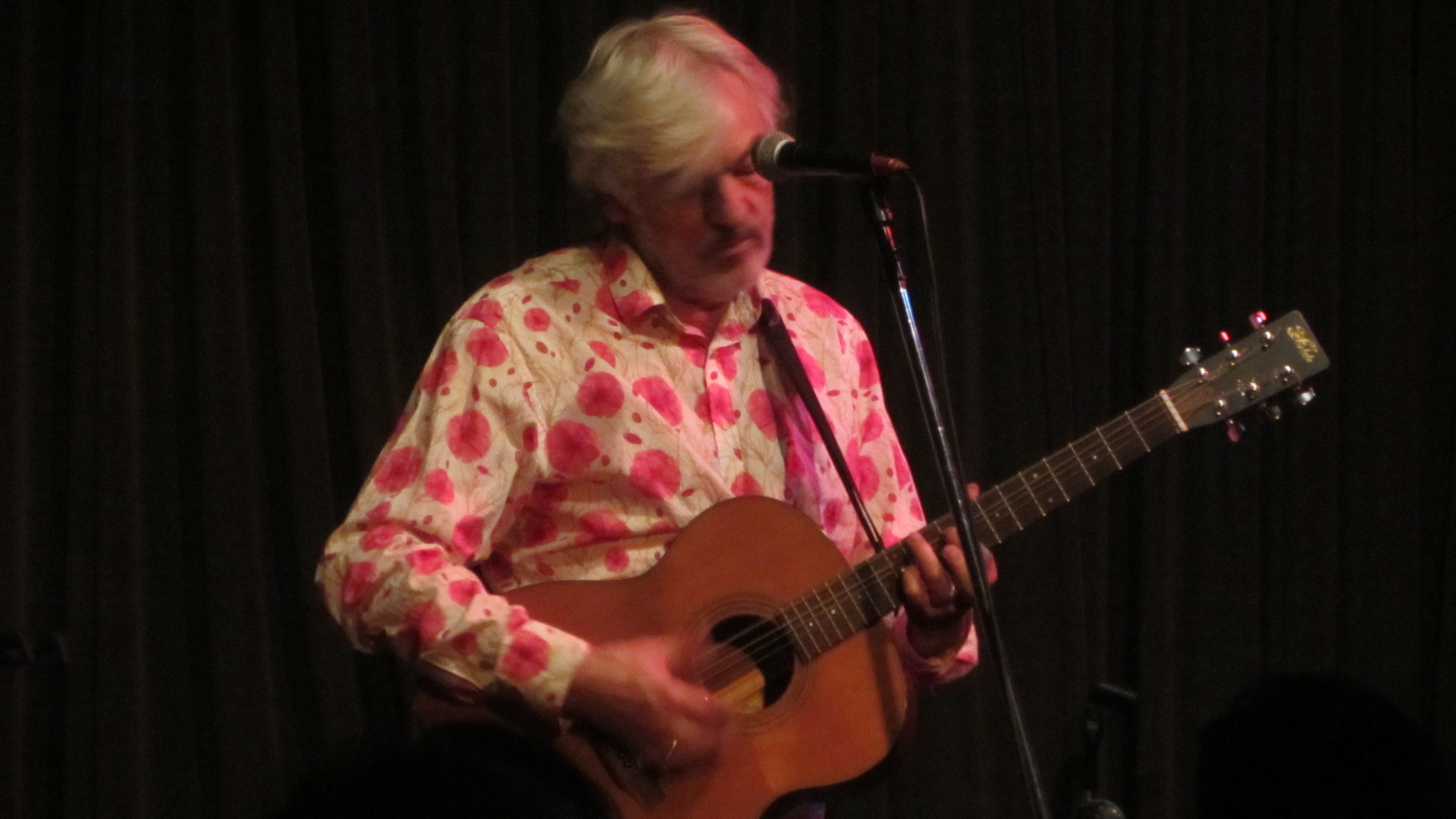
.jpg)
.jpg)

.jpg)
.jpg)

























